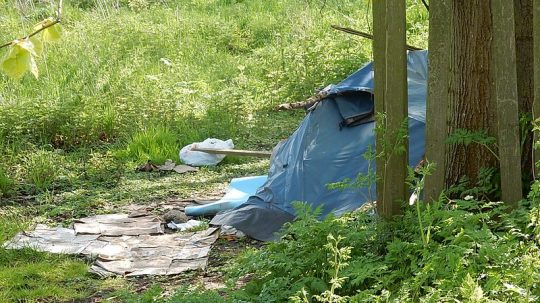The government has launched a new fund for local authorities to bid for financing for Traveller sites this and next year, after parliament passed the controversial Police, Crime Sentencing and Courts (PCSC) Act criminalising trespass on land in a vehicle in April.
Though the scheme has been welcomed by many, some members of the Gypsy, Roma and Traveller (GRT) community have said it does not go far enough to mitigate the impact of the PCSC Act. Some community members are concerned that new sites could violate the right to an adequate standard of housing Article 11 of the International Covenant on Economic, Social and Cultural Rights and undermine Travellers’ way of life.
The Department of Levelling Up, Housing and Communities (DLUHC) launched the Traveller Site Fund last month to provide £10 million in total of new funding to local authorities in England to establish or refurbish permanent sites for Travellers.
Greg Sproston, Policy Manager for the Traveller Movement, said that the small amount of funding available meant that the money would need to be used by a limited number of local authorities to have any impact. He said it was “woefully insufficient” and could not be considered a scheme of “national significance”.
The Department said that the scheme will aim to reduce “unauthorised encampments”, and increase the number of permanent and transit sites in England. The fund comes amid a national shortage of sites for Travellers according to GRT campaigning group Friends, Families and Travellers.
The new Traveller Site Fund doesn't go far enough to resolve the shortage of accommodation for Gypsies and Travellers, but it's a start.
Make sure you are telling your council leaders to apply for the fund and to improve provision in your area. 👇 https://t.co/OaMT9bvvH1 https://t.co/Rgsyd9qzzd
— Friends, Families & Travellers (@GypsyTravellers) March 25, 2022
Not enough to mitigate impacts of criminalising trespass
Boris Worrall, Chair of the National Advisory Panel on Gypsy and Traveller Housing called the proposals “welcome news” in a piece for the Travellers Times, highlighting that it could finance 60 to 80 new homes. Worrall stated that, though the fund was a welcome attempt to mitigate the “profound impact” of the PCSC Act, it did not go far enough.
Members of the Gypsy, Roma and Traveller community have said that they feel that their way of life has been directly targeted and that the PCSC act feels like a crack down on so-called “unauthorised encampments”. The government has been accused of discriminating against the GRT community for its targeting of unauthorised encampments under the PCSC; Gypsy, Roma and Traveller communities are protected from discrimination under the Equality Act 2010, as is every person in the UK.
Sami Mclaren, Senior Communications and Campaigns Officer for Friends, Families and Travellers, also raised concerns. Mclaren stated that the preference for bids of no more than £1 million could place a limit on local authorities’ and their ability to provide ‘decent-sized sites’.
Mclaren explained that provisions for giving preference to applications which include a 10 per cent contribution from the local authority could make it hard for “cash-strapped” local councils to get funding. Stating that in the end, the scheme could “hinder rather than help” the Traveller community.
It’s sparked a conversation
Moving for Change, a charity which supports the rights and cultures of nomadic Gypsy and Travelling people, worked with the DULHC to develop the fund.
There are not enough safe and legal spaces for Gypsy and Traveller families to stop in England.
Every council should apply for the new Traveller Site Fund.
Make sure they do, by writing to them with the WriteToThem Tool using arguments from our news piece. (1/2) pic.twitter.com/BMq6D1zao5
— Moving for Change (@Moving4ChangeUK) March 28, 2022
Adrian Jones, the organisation’s Policy Lead, told the Travellers Times that he hoped that the ring-fenced funding would encourage more local authorities to apply.
However, Jones said that in order to achieve its aims to improve access to education and health for the GRT community, the government must re-introduce the duty of local authorities to provide sites, which was scrapped in the Criminal Justice and Public Order Act 1994.
Current legislation states that local authorities must include policies to address the needs of the GRT community in their local development documents and assess the need for their accommodation when undertaking a review of housing needs in their borough, but are under no obligation to provide sites.
The Department for Levelling Up, Housing and Communities stated:
“The Traveller Site Fund aims to increase the supply of sites and reduce the level of unauthorised encampments. Our aim is for settled and travelling communities to be able to live side by side harmoniously and we hope that the fund will establish clear rules and boundaries to help facilitate that. The bidding process for the fund will establish clear rules and boundaries to help facilitate that.”





